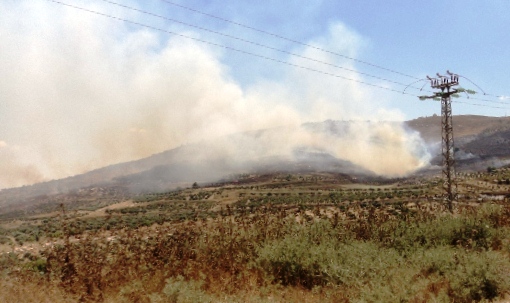Tag: Nablus
-
Israeli armed forces gun down 21 year old
14 July 2011 | International Solidarity Movement A 21 year-old student was killed by the Israeli army on July 13th in Al Faraa refugee camp, whilst on his way to prayer. Around 3:30 am the Israeli military entered the refugee camp with several heavily armed vehicles. Ibrahim Omar Serhan, a student at Al Najah University,…
-
Kufr Qaddoum peacefully demonstrates after 6 year wait
3 July 2011 | International Solidarity Movement, West Bank The popular committee, or local council, of Kufr Qaddoum requested the attendance of ISM volunteers at their first demonstration in the village after more than six years of protracted legal arguments before the notoriously one-sided Israeli High Court. The attempts to gain justice through legal recourse…
-
Settler arson attack in the village of Burin
30 June 2011 | International Solidarity Movement On Thursday 30 June at 11:00 AM, the villagers of Burin reported that a fire was started by a group of settlers in one of the village´s crop field in the hills. According to a villager who witnessed the events, Walid M. N. noted that before the fire…



